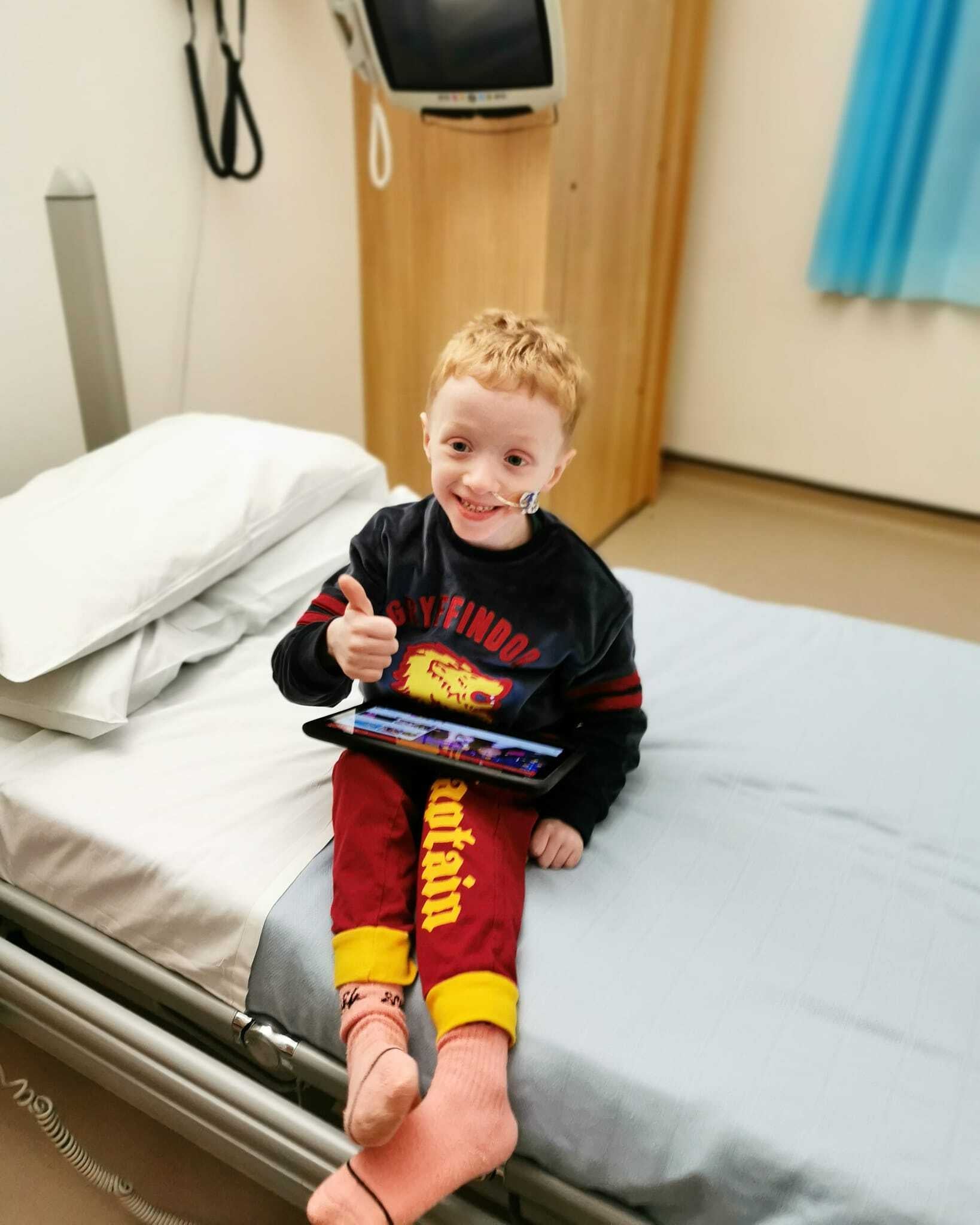Archie, six, rings bell to celebrate end of 42 months of cancer treatment
Archie Wilks’ parents hope he can enjoy a more normal life after completing his treatment for rare childhood cancer neuroblastoma.

Your support helps us to tell the story
From reproductive rights to climate change to Big Tech, The Independent is on the ground when the story is developing. Whether it's investigating the financials of Elon Musk's pro-Trump PAC or producing our latest documentary, 'The A Word', which shines a light on the American women fighting for reproductive rights, we know how important it is to parse out the facts from the messaging.
At such a critical moment in US history, we need reporters on the ground. Your donation allows us to keep sending journalists to speak to both sides of the story.
The Independent is trusted by Americans across the entire political spectrum. And unlike many other quality news outlets, we choose not to lock Americans out of our reporting and analysis with paywalls. We believe quality journalism should be available to everyone, paid for by those who can afford it.
Your support makes all the difference.A young cancer patient who gave hope to others when he survived Covid-19 early in the pandemic has finally rung the hospital bell to celebrate the end of his treatment.
Archie Wilks was just four when he caught coronavirus in March 2020 during treatment for neuroblastoma, a rare childhood cancer.
The Tottenham Hotspur fan’s recovery a few weeks later gave hope to many parents with seriously ill children and well-wishers included England striker Harry Kane.
It took another two years, after a total of 42 months of cancer treatment, for the six-year-old to finally be able to ring the bell at Addenbrooke’s Hospital, Cambridge, to celebrate being in full remission.
It was “an amazing and very emotional day” for Archie’s parents Harriet, 32, and Simon, 34, and his twin brother Henry.
“There were times, especially in the first year of treatment, that we didn’t see this moment ever happening,” Mr Wilks, 34, told the PA news agency.
“Finally seeing Archie ring the bell was an unexplainable experience, and witnessing people’s reactions since has really made us feel the magnitude of what he has achieved.
“Archie and Henry have both been so strong throughout the journey and, because of their age, it’s strange to wonder if they’ll ever realise what we’ve all been through.”
The past few years of hospital stays have meant the family, who live near Saffron Walden, Essex, have often been separated as Archie has been in hospital with one parent while Henry has remained home with the other.
“It will take some time, but we can now gradually look to get into a flow of a normal life and get Archie catching up at school and build his strength,” Mr Wilks told PA.
“He’s so resilient and got a great first school report, even though he’s missed at least 80% of the first two years.
“We hope to build ourselves back up and have some fun over the summer. It’s definitely been a stressful time, especially the last few months waiting on results and Archie’s treatment coming to a close.
“We can’t thank enough the NHS, the doctors, nurses, scientists and everyone who has helped and supported us and helped Archie to this stage.”
Archie was diagnosed with neuroblastoma in January 2019 after becoming so ill he could not stand up.
The rare cancer, which affects around 100 children each year in the UK and is most common in children under the age of five, develops from specialised nerve cells (neuroblasts) left behind from a baby’s development in the womb.
Two tumours were found around Archie’s kidney and spine and the disease had spread to other areas, including his bones and bone marrow.
Mr Wilks said 50% of children successfully treated for neuroblastoma will relapse. Of those who relapse, 90% will not survive.
Family and friends raised more than £230,000 to enable Archie to take part in a vaccine trial in the US which could reduce the chance of the cancer returning.
He did not fit the criteria for a vaccine trial at Memorial Sloan Kettering Cancer Centre in New York but the family are now consulting with another medical group about a different US trial.